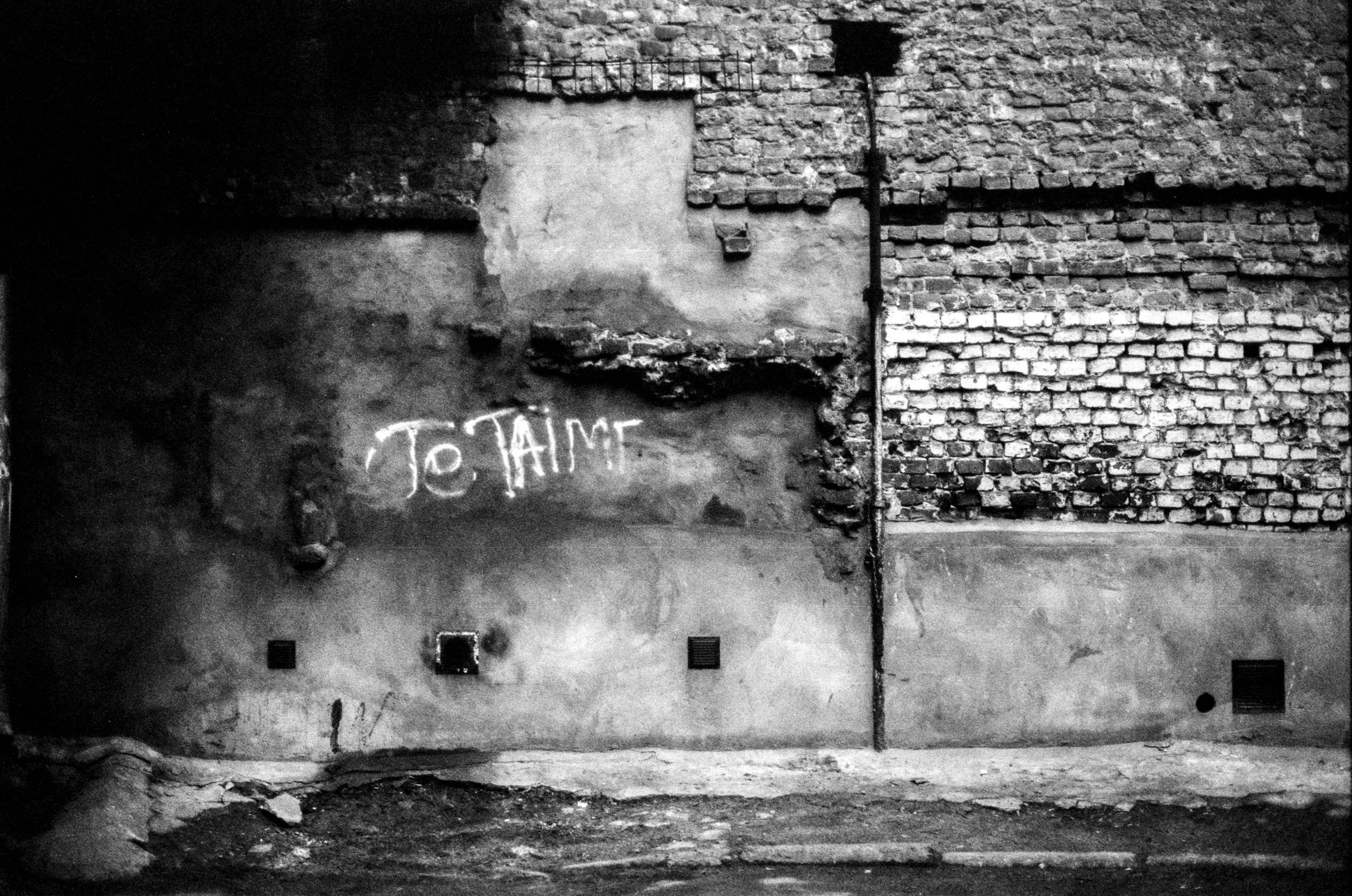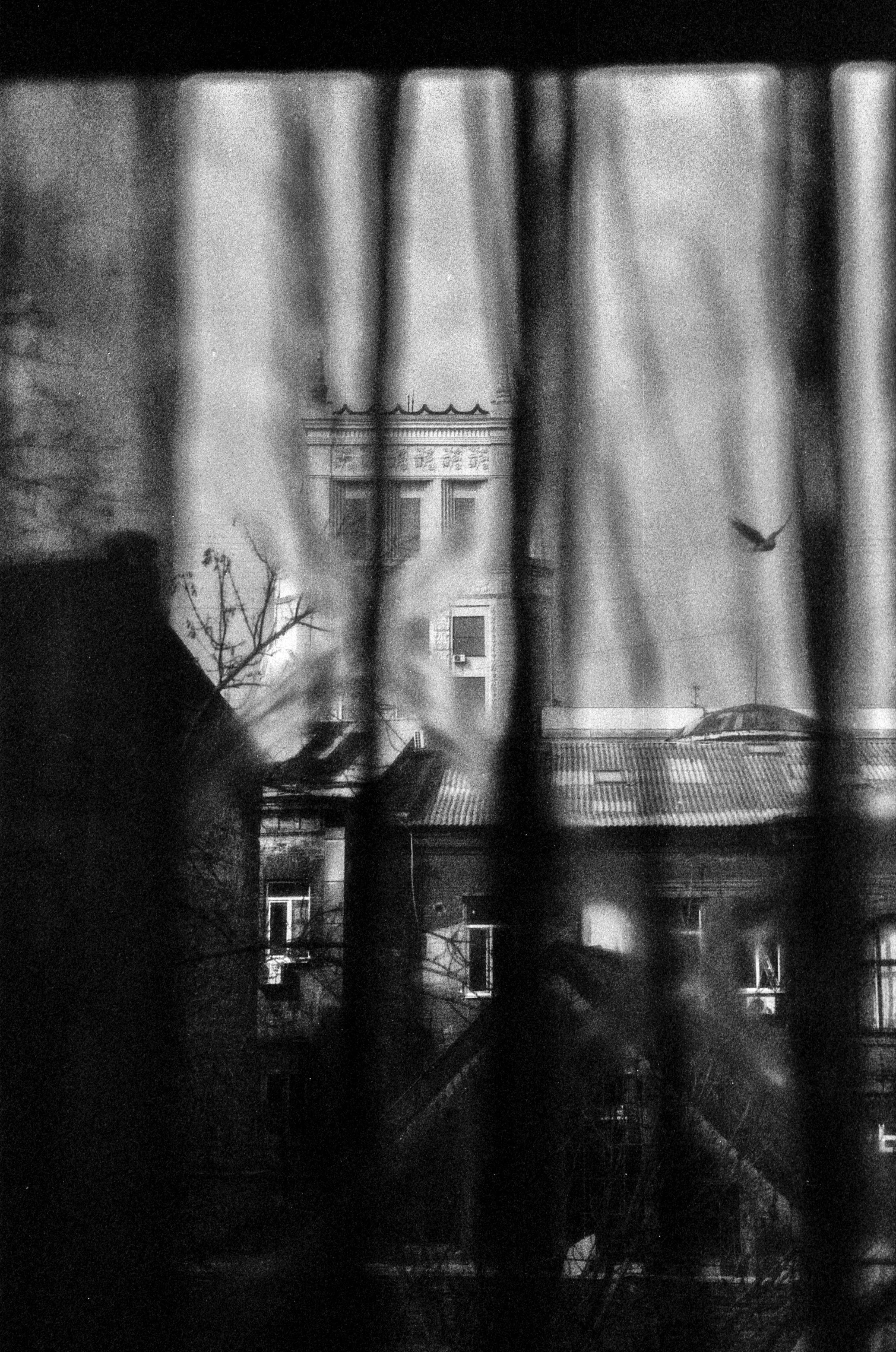Null Island (Kharkiv in spring #1)
”(The stories that give a society its identity) must correspond to a shared reality that society itself shapes from the myriad events of which it is the stage, rooted in time and space, and yet fluid and constantly changing. They cannot therefore be fictional inventions, in the sense of counterfeits or false representations; they must be invented fictions, in the sense of discoveries of historical social truths to which narrative expression confers their reality. They must, in the deepest literary sense, ring true.”
Alberto Manguel, The city of words
At the end of March 2024, the Spring sun is shining brightly and it is even warm in the streets. In the large square in front of Kharkiv central station, the alarm siren rings around the surrounding buildings. A stream of people pours out of the station, having just arrived, like me, from the 12:05 Kyiv-Kharkiv train.
The first building of Kharkiv station, built in the 19th century, was the most imposing in the Russian Empire. Destroyed during the Second World War and rebuilt in 1952, the building is still imposing, with a vault covered in Soviet mythological paintings that have resisted de-Sovietisation. Until 24 February 2022, the station also served as a border post for trains to and from Russia. The special thing about this station and this city is that for decades they have had their eyes turned towards the West and the East, the North and the South. Kharkiv was an important market place for all trade in the region. But the proximity of this 1.4 millions inhabitant city to Russian territory (about 30 kilometres to the Belgorod Oblast) has always placed it in a difficult position.
In front of the station, at the end of the 5 or 6 iterations of this shrill noise, which is unfortunately an everyday occurrence in most Ukrainian cities, a woman's voice announces the reason: ‘Danger of drone attack!’ or, more rarely, ‘Danger of rocket attack!’. As everywhere else, few people react, some simply taking out their phones to assess the threat thanks to certain Telegram channels with more or less precise information on the type and proximity of the threat.
At the beginning of Russia's large-scale invasion of Ukraine, the city's large Russian-speaking and Russophile community made it feel like a fragile bastion. This was already the case at the beginning of the last century, when the city fell into the hands of the Bolsheviks only a few months after Ukraine declared its independence, before being ceded to Germany by the Treaty of Brest-Litovsk, taken over by the Bolechviks, then by the Whites before becoming the capital of Soviet Ukraine in 1919 and remaining so until 1934. But from February to May 2022, the city was able to organise itself, resist the invader and push him back. During these two months of fighting, apart from the military, journalists, volunteer militiamen and humanitarian personnel, the inhabitants who remained in the city hid in shelters, in the subways, in basements. In the street, a few alcoholics wander around, thinking of themselves the new kings in town.
Because of the alert, it is more difficult to order a taxi. The GPS network is jammed, or even completely down, to prevent drones from using it for guidance. You have to know where to set the starting point of the race, and be able to spot the taxi, which will tend not to park exactly where it should. Google Map, which also works thanks to the GPS network, doesn't help much either. When you open the application, you can see yourself located dozens of kilometres from your real position. In the worst case scenario, you could find yourself thousands of kilometres away, in the Gulf of Guinea, at a point more than 500 kilometres from the nearest coast: Null Island. It is a place that millions of people have certainly already visited virtually without realising it, accompanying this unplanned journey with an ‘Oh, bloody GPS!’ thought or comment.
The first special feature of this small island is that it is located in the centre of the world, if we consider that the double zeros (0°N 0°E) can be one. At its centre, the equator and the prime meridian (known as the ‘Greenwich meridian’, invented by the British in the 19th century and adopted by the whole world in exchange for the adoption of the metric system as an international reference by the British themselves) intersect. Its second peculiarity is that it is the place where geocoded data die. In fact, when the data sent to a mapping system is incorrect, it responds with a double 0, which locates the search result on this point of the Atlantic. Therefore, geolocation systems regularly receiving faulty data will indicate Null Island as the location point. I don't know if it's a nod from Google's cartographers to their counterparts (these same cartographers who renamed the Gulf of Mexico the ‘Gulf of America’ on the app just after Donald Trump's last intronisation), but you can just about make out the outline of an island on the Maps application when you end up at 0°N 0°E. But Null Island does not exist. There is no land within a 500km radius, only an analysis buoy floating there, but it has not been working for several years.
The taxi driver who takes me to the city centre seems disturbed and suspicious. The military recruiters are prowling around and, unable to verify the address he is taking me to, he asks me several times where I am going to live. I'm not sure, but I imagine that members of the military office are posing as taxi customers in order to arrest their driver after their journey. Or at least that's the rumour, like so many others, more or less persistent and verifiable, about the violence, corruption or ingenuity of the recruiters.
The proximity of the city and its inhabitants to Russia creates a strong climate of suspicion, in the street, cafés and shops. It is more difficult here to meet a gaze than in Kyiv or Lviv. It is also relatively rare to come across a soldier in uniform, certainly to prevent their movements from revealing too much to Russian observers and to those who direct the attacks of drones, rockets or gliding bombs. On the evening of my arrival, a massive drone attack wreaked havoc in the city centre. ‘It was quiet before you arrived...’ my friend told me.
Listening to the explosions that come closer or move away, I tell myself that the drones that attack the city almost daily are therefore constantly virtually located, according to their GPS data, at Null Island. Virtually, they attack Null Island every day. It must be the most militarised, most attacked place in the world, the one with the highest concentration of attack drones, fighter planes, ballistic missiles and rockets. But on Null Island, no one hears explosions, no one dies in their sleep. No one has to wonder every morning if today is the day they will die. No one fears of behing drafted. No one lives in Null Island. Null Island does not share a border with Russia. Kharkiv, unfortunately, does. Null island doesn’t “ring true”. Kharkiv, fortunately, does.


